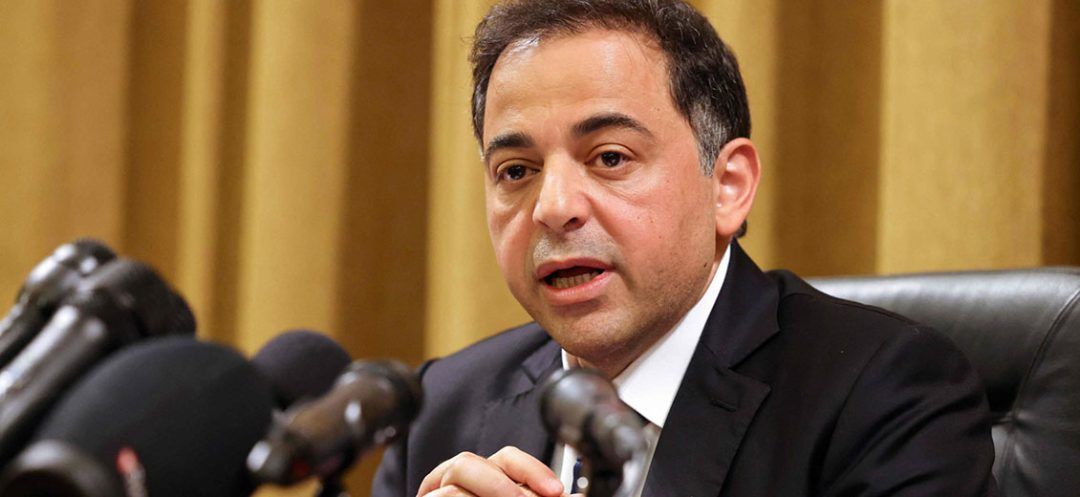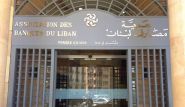
Wassim Mansouri, the first vice-governor of Banque du Liban (BDL), said on Thursday that “Banque du Liban is working to establish a state of stability pending major solutions that require the action of political forces," and he emphasized that “we are still working hard to prevent Lebanon from being included on the FATF's grey list.”
In a speech he delivered at the opening of the “Annual Forum on Combating Money Laundering and the Financing of Terrorism: The Impact of the Monetary Economy on the Banking System” organized by the Union of Arab Banks (UBA) at the Phoenicia Hotel, Mansouri emphasized that hosting this forum in Beirut demonstrates UBA's strong commitment to supporting Lebanon's banking sector and strengthening cooperation among Arab banks.
“The issue of combating money laundering and the financing of terrorism is a priority for Lebanon, which has come a long way in this area," he said before noting that Lebanon has overcome many difficulties, the most important of which was its inclusion on the Financial Action Task Force (FATF)'s list of non-cooperative countries for combating money laundering in 2000, due to banking secrecy laws that hampered international investigations and the absence of an independent anti-money laundering law at the time.
Since then, Lebanon has taken the necessary steps, starting with the adoption of an anti-money laundering law based on the recommendations of the Financial Action Task Force, the development of an integrated regulatory framework and the creation of a special investigative body.
The FATF's decision will be approved next autumn, and the First Vice-Governor assured that he is working “hard” to avoid Lebanon being placed on the grey list. The assessment report produced by the regional group stresses that local authorities need to make changes to existing laws and measures in line with the requirements for compliance with all international anti-money laundering and anti-terrorist financing standards. Mansouri reported that Lebanon achieved satisfactory, though incomplete, marks in the overall assessment of technical compliance, scoring compliant or largely compliant in 34 out of 40 recommendations approved by international regulators.
In terms of effectiveness, Lebanon received a low score, revealing the inadequacy of laws and procedures for prosecuting, investigating and adjudicating money laundering offenses. Lebanon therefore needs to develop a participatory action plan with the relevant local authorities to enhance the effectiveness of the Lebanese system in combating money laundering and the financing of terrorism.
Mansouri also pointed out that from the start of the crisis to the present day, the economy has contracted sharply, with domestic product (GDP) falling from around $55 billion a year to less than $20 billion and the Lebanese pound losing 98% of its value, while average inflation has reached 221.3% in 2023. As for the budget, it has fallen from $17 billion to $3.2 billion.
These crises have created a state of mistrust among depositors, which has diverted economic activity away from the banking system towards an informal cash economy, posing a major risk to the state and threatening to reverse Lebanon's progress in combating money laundering in the banking sector.
He recalled that, within this framework, the BDL issued Circular 165, which authorizes the opening of new accounts with cash funds in dollars and Lebanese pounds and introduces major changes to the system for monitoring financial and banking operations in order to combat money laundering and the financing of terrorism.
Thanks to these policies, the money supply has fallen by over 25% since the beginning of 2023, currently standing at 59,000 billion pounds as of mid-August (2024). As for BDL's foreign currency reserves, they have grown by over $1.8 billion since August 2023, reaching $10.388 billion, while the money supply remains below $700 million.
In a speech he delivered at the opening of the “Annual Forum on Combating Money Laundering and the Financing of Terrorism: The Impact of the Monetary Economy on the Banking System” organized by the Union of Arab Banks (UBA) at the Phoenicia Hotel, Mansouri emphasized that hosting this forum in Beirut demonstrates UBA's strong commitment to supporting Lebanon's banking sector and strengthening cooperation among Arab banks.
“The issue of combating money laundering and the financing of terrorism is a priority for Lebanon, which has come a long way in this area," he said before noting that Lebanon has overcome many difficulties, the most important of which was its inclusion on the Financial Action Task Force (FATF)'s list of non-cooperative countries for combating money laundering in 2000, due to banking secrecy laws that hampered international investigations and the absence of an independent anti-money laundering law at the time.
Since then, Lebanon has taken the necessary steps, starting with the adoption of an anti-money laundering law based on the recommendations of the Financial Action Task Force, the development of an integrated regulatory framework and the creation of a special investigative body.
The FATF's decision will be approved next autumn, and the First Vice-Governor assured that he is working “hard” to avoid Lebanon being placed on the grey list. The assessment report produced by the regional group stresses that local authorities need to make changes to existing laws and measures in line with the requirements for compliance with all international anti-money laundering and anti-terrorist financing standards. Mansouri reported that Lebanon achieved satisfactory, though incomplete, marks in the overall assessment of technical compliance, scoring compliant or largely compliant in 34 out of 40 recommendations approved by international regulators.
In terms of effectiveness, Lebanon received a low score, revealing the inadequacy of laws and procedures for prosecuting, investigating and adjudicating money laundering offenses. Lebanon therefore needs to develop a participatory action plan with the relevant local authorities to enhance the effectiveness of the Lebanese system in combating money laundering and the financing of terrorism.
Mansouri also pointed out that from the start of the crisis to the present day, the economy has contracted sharply, with domestic product (GDP) falling from around $55 billion a year to less than $20 billion and the Lebanese pound losing 98% of its value, while average inflation has reached 221.3% in 2023. As for the budget, it has fallen from $17 billion to $3.2 billion.
These crises have created a state of mistrust among depositors, which has diverted economic activity away from the banking system towards an informal cash economy, posing a major risk to the state and threatening to reverse Lebanon's progress in combating money laundering in the banking sector.
He recalled that, within this framework, the BDL issued Circular 165, which authorizes the opening of new accounts with cash funds in dollars and Lebanese pounds and introduces major changes to the system for monitoring financial and banking operations in order to combat money laundering and the financing of terrorism.
Thanks to these policies, the money supply has fallen by over 25% since the beginning of 2023, currently standing at 59,000 billion pounds as of mid-August (2024). As for BDL's foreign currency reserves, they have grown by over $1.8 billion since August 2023, reaching $10.388 billion, while the money supply remains below $700 million.
Read more



Comments